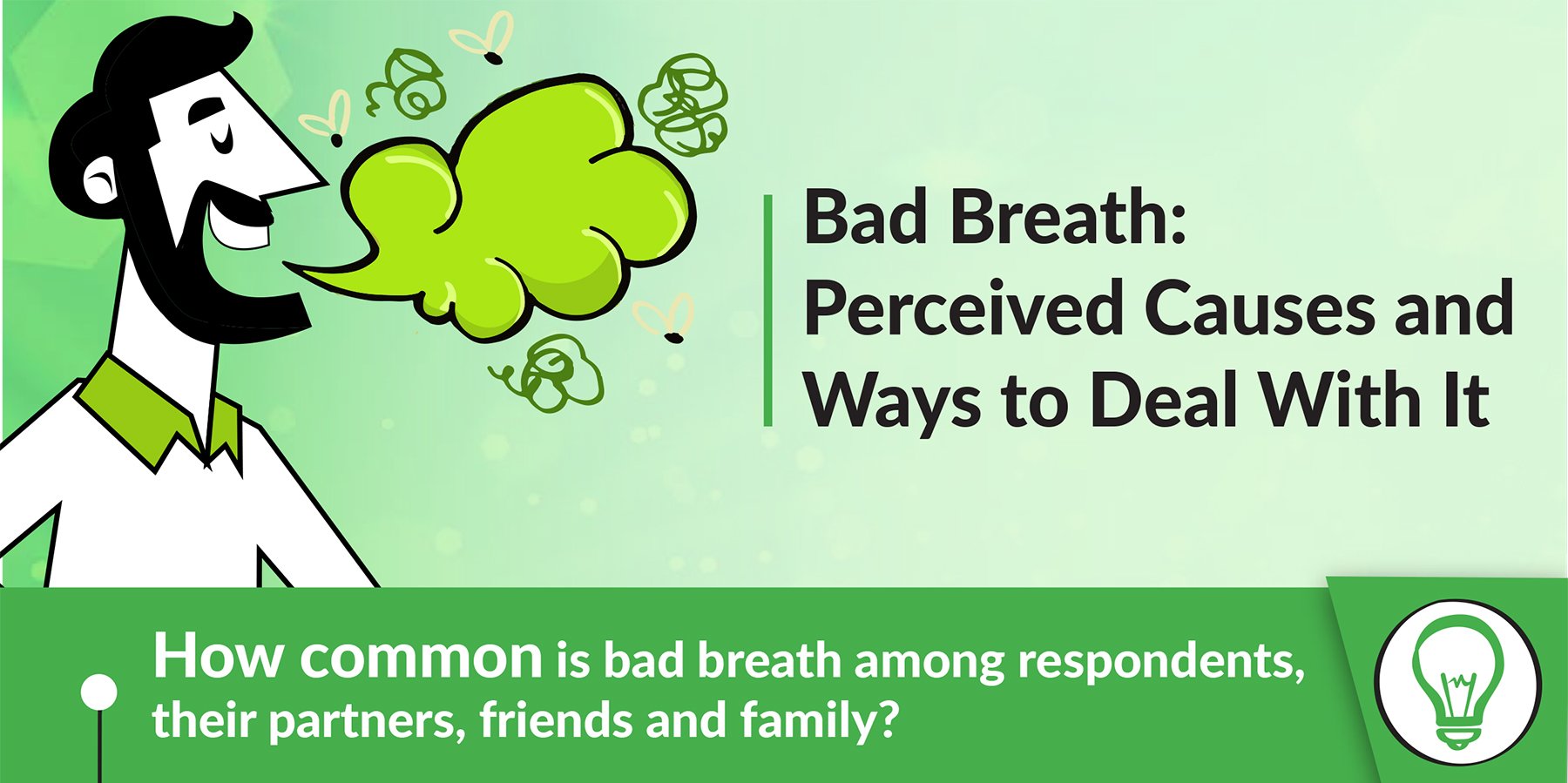Bad breath can be an embarrassing problem with social and health implications. It is common to have it from time and this can often be a misleading argument for not paying more attention to the problem when it continues. However, persistent bad breath is not an issue that resolves itself. Chronic bad breath, referred to as halitosis, does not go away with mints and mouthwash. Despite the fact that unpleasant mouth odours may affect social life and relationships, there are many misconceptions, which prevent it from being properly treated.
DentaVox research on bad breath sheds some light on the topic and provides an insight on perceived causes and ways people try to deal with the condition. The results indicate that having bad breath is not only common but also quite a persistent issue. 63.7% of people with bad breath have experienced it for more than one year. With regards to the causes, blaming certain foods for bad breath is a widespread belief. If people associate it with oral issues, they think of cavities rather. Gum disease, a known culprit for halitosis, is widely underestimated and seeking professional help to get rid of the problem is considered by just 2.5% of respondents.
Q2 hedge fund letters, conference, scoops etc
Discover more insights on the perceived causes and treatment strategies in the infographic below.
Download Infographic (.pdf)
Bad breath experienced for at least one year by 67.3%
With two-thirds of people saying they have had bad breath for one year or more, the survey results suggest that it is not only widespread but also a long-term issue. Over 60% of respondents have experienced bad breath. Similarly, 61.9% of research participants have a family member or a friend with the condition. In addition, more than 40% of respondents admit they have noticed unpleasant breath smells from their partners.
Food is considered the most popular cause of bad breath
Consumption of certain foods is believed to be the most likely reason for bad breath. At the same time, gum disease is very underestimated with only 15% recognizing it as a possible reason for unpleasant odours coming from the mouth. While eating garlic or other smell-inducing foods can be a cause of bad breath from time to time, it is usually not the case when it comes to long-term occurrences, as reported by respondents. In that aspect, the results indicate a prevailing misconception.
Only 2.5% turn to a professional healthcare specialist
Only a very small percentage of respondents, 2.5%, seek help from a healthcare professional to treat bad breath. Drinking more water and oral hygiene improvement are the most widespread ways people try to deal with the problem. Short-term strategies, such as using gum or chewing mint/ parsley to cover the smell, are also popular. However, it may be surprising that only 11.9% of respondents consider changing their diet, despite the prevailing belief that certain foods are the main cause for the problem.
More key dental market statistics, you can find on https://dentavox.dentacoin.com/en/dental-survey-stats/.
DentaVox is a market research platform that collects opinions through paid surveys on a variety of oral health topics. It guarantees legit market statistics due to its anti-manipulation mechanisms and a growing number of respondents with blockchain-verified identities and varied demographics. Used by 36.7K respondents who have answered nearly 16 million questions, DentaVox is positioning itself as a trustworthy source for up-to-date dental market statistics, widely used by dental professionals, suppliers, media, students, and researcher
For more information, please contact us back at [email protected].






